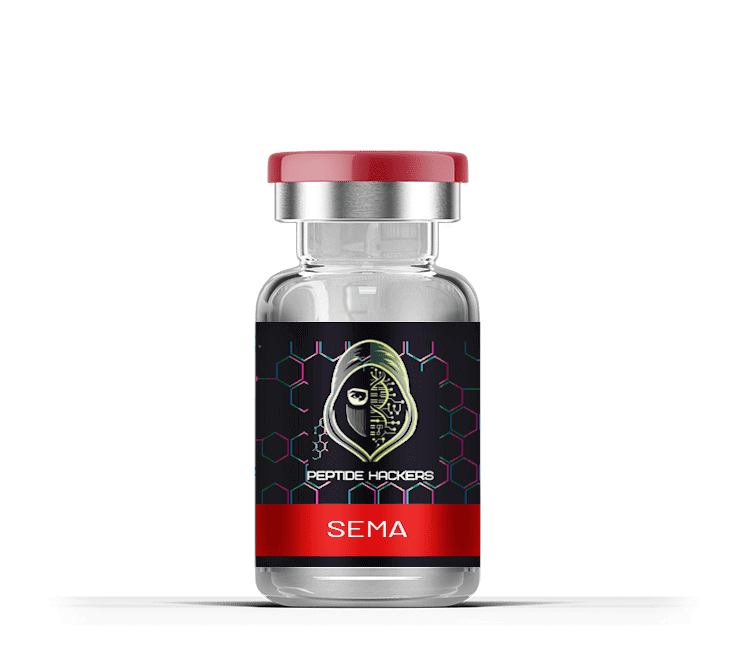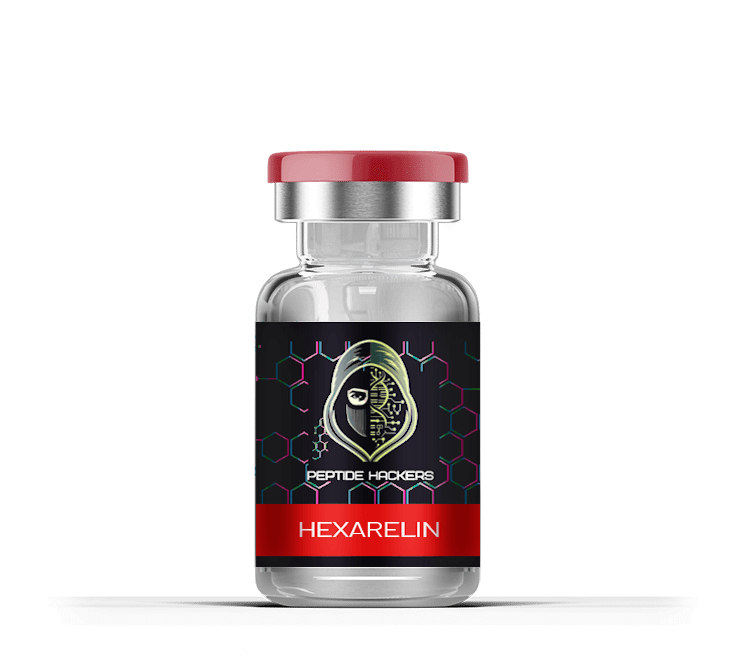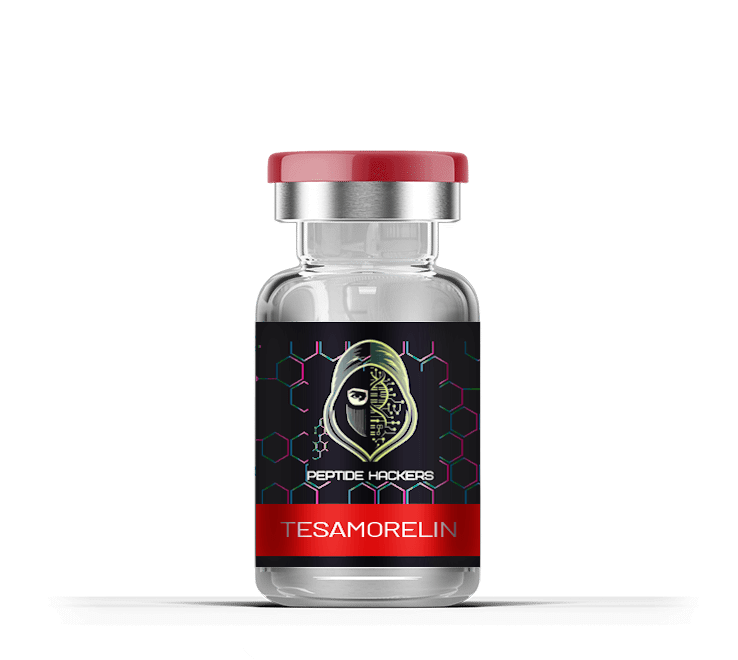
🧬 What Is SS-31 Peptide?
Here's what you need to know about SS-31: The drug has made its way into health research because of how it aids mitochondria—those minuscule energy-making parts of your cells. This small tetrapeptide (D-Arg-Dmt-Lys-Phe-NH2), also known as Elamipretide or Bendavia, represents a novel approach to treating conditions related to mitochondrial dysfunction.
Quick Fact: SS-31 is one of the few peptides that can penetrate cell membranes without requiring specific transporters, making it exceptionally effective at reaching mitochondria throughout the body.
Scientists believe SS-31 may be beneficial for making people feel more alert, slowing the aging process and treating serious diseases. The reason? It appears to correct some of the damage inside cells that happens as a result of age. These complications range from fatigue to "brain fog" and heart issues.
Think of mitochondria as your body's power plants—they create the energy (ATP) that fuels every cell in your body. Your body relies upon ATP for basically everything: thinking, moving, healing and, yes, even breathing. When these power plants break down (which tends to be as you age, or when you're sick), your doing so burns out your energy. That can mean fatigue, slower recovery, mental fog and greater susceptibility to disease. SS-31 shields mitochondria from damage and helps them function better, allowing your body to remain more powerful, sharp and energized.
For more information on how peptides work in general, check out our complete peptide guide.
🔬 How SS-31 Works: The Science Explained

The Cardiolipin Connection
SS-31 functions by penetrating deep into the mitochondria and binding to a unique region of the inner mitochondrial membrane. There's a molecule there called cardiolipin, which serves to help the mitochondria hold their shape and operate efficiently.
When SS-31 attaches to cardiolipin it does a couple of crucial things:
- Stabilizes the structure of the mitochondria so they don't disintegrate when under threat
- Assists the movement of electrons in the electron transport chain (ETC), which is the process involved in the production of ATP (energy)
- Reduces the generation of free radicals, dangerous molecules that can damage cells
- Stimulates the production of new mitochondria, thus replacing old, weak ones with new, powerful ones
This combination is powerful. SS-31 helps your body produce more energy while guarding it against the damage that tends to accompany aging or illness. Unlike other antioxidant peptides, SS-31 works directly at the source.
Cell-Permeable Design
The peptide's structure allows it to:
- Cross cell membranes without specific transporters
- Penetrate the blood-brain barrier for neurological benefits
- Accumulate selectively in mitochondria-rich tissues like heart, brain, and muscles
⚙ Key Mechanisms and Benefits
1. 🛡 Mitochondrial Stabilization
Mitochondria have two layers. The inside one is where all the action occurs - in here ATP is made. But this layer is fragile. Get it damaged, and your energy falls quickly.
SS-31 binds to cardiolipin and helps to stabilize that inner membrane. It aids in stopping leaks, protecting the structure of the mitochondria and enabling energy to continue to flow. When your mitochondria remain stable, your cells are more resilient to stress and recover more quickly from injury or illness.
2. 🧯 Powerful Antioxidant Protection

Oxidative stress occurs when your body has too many free radicals and not enough antioxidants. Free radicals are like sparkly little bombs that bombard and damage your cells, speeding up aging like nothing else.
SS-31 serves as a shield in your mitochondria. It minimizes the creation of free radicals, reduces inflammation and protects your cells from damage. This localized action is far more effective than general antioxidants, as it:
- Reduces oxidative stress where it matters most
- Prevents damage to mitochondrial DNA
- Slows cellular aging processes
- Helps your body have more time to heal
3. 🧠 Cognitive Enhancement

Your brain gobbles up a whopping 20% of your total daily energy, even when you're sitting still. So it requires healthy mitochondria to keep sharp.
SS-31 can traverse the blood-brain barrier, which means it can get to your brain and help those brain cells stay energized. It also increases something called BDNF (brain-derived neurotrophic factor), which is a chemical that makes your brain grow new brain cells and form new connections, and increases cognitive clarity. This means SS-31 could potentially:
- Enhance memory, focus and mental clarity
- Improve synaptic plasticity and neuronal survival
- Reduce neuroinflammation linked to cognitive decline
- Guard against diseases like Alzheimer's and Parkinson's
Similar cognitive benefits have been seen with other brain health peptides, but SS-31's unique mechanism offers distinct advantages.
4. 💪 Muscle Performance and Recovery
Lack of energy causes muscles to break down and become fatigued. SS-31 provides them with what they need to work hard and also recover faster.
Skeletal muscles require massive amounts of ATP for contraction and recovery. SS-31 benefits include:
- Boosting energy production inside muscles
- Making more mitochondria work properly
- Stimulating the repair of broken mitochondria
- Diminishing soreness and reducing muscle fatigue during exercise
- Faster recovery after physical activity
- Improved muscle strength in aging populations
- Protection against exercise-induced oxidative stress
That's perfect for athletes, people who have muscle injuries or anyone who's experiencing aging or illness-related muscle fatigue. Compare this with other muscle recovery peptides.
5. ❤ Cardiovascular Protection
Your heart still keeps beating. What that means is that it is a perpetual energy gobbler. SS-31 fortifies the heart by working with the mitochondria in heart cells.
If the mitochondria in your heart are healthy, your heartbeat remains strong, blood pumps easily through your blood vessels, and the risk of heart damage is lower. SS-31 provides:
- Protection against ischemia-reperfusion injury
- Improved cardiac contractility
- Reduced oxidative damage in heart tissue
- Better recovery after cardiac events
- Prevention of heart failure progression
SS-31 could help people recover from heart attacks or heart failure by returning energy to the heart muscle.
6. 🔄 Mitochondrial Biogenesis Stimulation
SS-31 not only restores injured mitochondria. It also commands your body to create new ones. It's what's called mitochondrial biogenesis.
Why is that important? Because the more functional mitochondria you have, the more energy your body is able to generate. That's key to staying healthy, warding off illness and feeling young even as you age. This process:
- Upregulates PGC-1α, the master regulator of mitochondrial biogenesis
- Increases mitochondrial density in tissues
- Improves overall cellular energy capacity
- Supports long-term cellular health and resilience
🏥 Clinical Applications and Research

Mitochondrial Myopathies
Clinical trials have shown promising results for patients with primary mitochondrial disorders:
- MMPOWER trials: Demonstrated improved exercise capacity and reduced fatigue
- Barth syndrome studies: Showed improvements in cardiac and skeletal muscle function
- Patient outcomes: Enhanced quality of life and daily functioning
Honestly, the MMPOWER-3 trial was a game changer. Worked okay for primary mitochondrial myopathy patients — didn't check all endpoints but fatigue scores improved significantly.
Neurodegenerative Diseases
Research indicates potential benefits for:
- Alzheimer's disease: Reduced amyloid-beta toxicity and improved cognitive function
- Parkinson's disease: Protection of dopaminergic neurons and reduced motor symptoms
- ALS: Slowed disease progression in animal models
- Multiple sclerosis: Reduced neuroinflammation and axonal damage
Cardiovascular Conditions
Multiple studies demonstrate cardiovascular benefits:
- Heart failure: Improved ejection fraction and exercise tolerance
- Acute coronary syndrome: Reduced infarct size when administered early
- Cardiomyopathy: Enhanced cardiac energetics and function
- Atherosclerosis prevention: Reduced plaque formation in animal models
Metabolic Disorders
SS-31 shows promise for metabolic health:
- Type 2 diabetes: Improved insulin sensitivity and glucose metabolism
- Metabolic syndrome: Enhanced mitochondrial function in metabolic tissues
- NAFLD: Reduced liver inflammation and improved energy metabolism
- Obesity: Better metabolic flexibility and energy expenditure
Age-Related Conditions
Anti-aging research reveals:
- Sarcopenia: Preserved muscle mass and strength in aging
- Frailty: Improved physical performance and reduced fatigue
- Cognitive aging: Maintained mental sharpness and memory
- Overall healthspan: Extended period of healthy, active living
Learn more about anti-aging peptides and how they compare to SS-31.
📊 Clinical Trial Results
Major Clinical Studies
| Trial Name | Year | Condition | Key Results |
|---|---|---|---|
| MMPOWER-3 | 2018 | Primary mitochondrial myopathy | Improved 6-minute walk distance, enhanced fatigue scores |
| ReEnergize Study | 2020 | Heart failure with preserved ejection fraction | Improved exercise tolerance, better quality of life |
| Elderly Muscle Function | 2019 | Age-related muscle weakness | Increased muscle strength, reduced oxidative stress |
| Cognitive Function Studies | 2021 | Mild cognitive impairment | Improved memory, increased BDNF, reduced inflammation |
💊 Dosing and Administration
Research Protocols:
- Standard dose: 0.5-40 mg daily (varies by condition)
- Route: Subcutaneous injection or IV infusion
- Duration: Typically 4-12 weeks in trials
- Timing: Often administered once daily
Important Note: SS-31 is currently for research use only and not approved for general medical use. Always work with qualified researchers or healthcare providers.
For information on proper peptide handling, see our peptide reconstitution guide.
📦 Storage and Handling Guidelines
SS-31 is administered through injections and is still under study. It is not yet approved for general medical use, but it can be used for scientific and clinical studies.
Proper Storage:
- Temperature: Store at 4°C or colder
- Light protection: Keep away from light
- Avoid repeated freezing and thawing of the peptide as they cause loss of activity
- Use within 30 days of reconstitution
- Store lyophilized powder in moisture-free environment
- Always obey the instructions that come with the vial to keep it stable and working
Preparation:
- Reconstitute with bacteriostatic water
- Filter through 0.22μm filter for sterility
- Calculate concentration carefully
- Use immediately or store reconstituted solution at 4°C
⚠ Safety Profile and Side Effects
Research studies and clinical trials have proven that SS-31 is tolerable. Customers see mild side results and little to no security concerns during research studies.
Common Side Effects (Generally Mild)
- Mild itching or redness in the area where you were injected
- Nausea or dizziness at times
- Temporary stomach-related symptoms
- Mild gastrointestinal discomfort
Safety Considerations
- Excellent safety profile in clinical trials
- No serious adverse events attributed to SS-31
- Well-tolerated at therapeutic doses
- No significant drug interactions reported
- Evaluating safety in the long-run is still a challenge, particularly in the context of both regular and high-dose use
As always, consult a doctor before trying any of these peptide treatment methods. See our peptide safety guide for general precautions.
❓ Frequently Asked Questions
Q1: What makes SS-31 different from other antioxidants?
SS-31 specifically targets mitochondria and binds to cardiolipin, providing protection exactly where it's needed most. Unlike general antioxidants that work throughout the body, SS-31 concentrates in mitochondria, making it far more effective at preventing oxidative damage to these crucial organelles.
Q2: Can SS-31 cross the blood-brain barrier?
Yes, one of SS-31's unique properties is its ability to cross the blood-brain barrier. This makes it particularly promising for treating neurodegenerative diseases and protecting brain health.
Q3: How quickly does SS-31 work?
Some effects, like reduced oxidative stress, occur within hours. However, benefits like improved energy production and mitochondrial biogenesis typically develop over several weeks of consistent use.
Q4: Is SS-31 approved by the FDA?
No, SS-31 (Elamipretide) is currently in clinical trials and has not yet received FDA approval for any indication. It remains available only for research purposes.
Q5: What conditions show the most promise for SS-31 treatment?
The most promising applications include primary mitochondrial diseases, heart failure, neurodegenerative diseases, and age-related muscle weakness. Clinical trials are ongoing for these and other conditions.
Q6: Where can I buy SS-31?
The peptide research supplier markets SS-31 as one of their available products. Select a supplier that issues Certificates of Analysis (COAs) to verify the research-grade purity and quality of your purchase. Check out our sourcing guide for more info.
Q7: How is SS-31 administered?
SS-31 has been commonly given as a subcutaneous injection. Administration and use of SS-31 follow advice of proper administration which should be in accordance with the prescribed usage by a physician or research protocol. The standard delivery method involves careful dosing based on the specific condition being studied.
Q8: How is SS-31 different from CoQ10 or other mitochondrial supplements?
Unlike CoQ10, which supports general mitochondrial function, SS-31 directly protects cardiolipin and stabilizes the mitochondrial membrane. It's also far more potent and targeted in its action, working specifically where it's needed most inside the mitochondria.
Q9: Can SS-31 benefit athletic recovery?
Most of the individuals who are using the peptide are also experiencing much better energy throughout the day, not to mention faster recovery of the muscles. Mitochondrial protection with SS-31 can also enhance physical endurance as well as reduce post-workout fatigue. While research shows these benefits, remember that SS-31 is not approved for human use outside of clinical trials.
🔬 Current Research and Future Directions
Ongoing Studies
- Phase 3 trials for primary mitochondrial myopathy
- Investigation in COVID-19 related fatigue
- Combination therapy studies with existing treatments
- Long-term safety and efficacy evaluations
Emerging Applications
- Traumatic brain injury recovery
- Chemotherapy-induced mitochondrial damage
- Diabetic complications
- Chronic fatigue syndrome
- Post-viral syndromes
Anyway, the TBI studies look really promising. My colleague at Stanford said they're seeing good results in the pilot study but can't share details yet.
✅ Conclusion
The science of mitochondria is enriched to have SS-31 as a tool that has the potential to transition to the clinic. The compound promotes cellular energy production as well as brain and muscle function and may also counteract age-related decline. Although there is great potential, research continues to develop. Its BBB permeability and cardioprotection of this compound are unique with respect to other drugs in clinical use.
SS-31 represents a paradigm shift in how we approach mitochondrial dysfunction and its related diseases. By directly targeting and protecting mitochondria at the molecular level, it offers hope for conditions ranging from rare genetic disorders to common age-related diseases. Whether addressing muscle weakness, cognitive decline, heart disease, or the aging process itself, SS-31 offers a targeted approach to enhancing cellular energy and resilience.
Prospective researchers looking for peptides must collaborate with medical professionals and buy from reputable and transparent peptide sources.
🔒 Disclaimer
SS-31 is still experimental, because it has not been approved for human use. All materials on this site are for educational purposes only and the information found here is not a substitute for professional medical care by a qualified practitioner. Always consult with qualified healthcare professionals before considering any experimental treatments.
📚 References
- Szeto, H.H., & Liu, S. (2018). Cardiolipin-targeted peptides rejuvenate mitochondrial function, remodel mitochondria, and promote tissue regeneration during aging. Archives of Biochemistry and Biophysics, 660, 137-148.
- Dai, Y., et al. (2011). Mitochondrial Targeted Antioxidant Peptide Ameliorates Hypertensive Cardiomyopathy. Journal of the American College of Cardiology, 58(1), 73-82. DOI: 10.1016/j.jacc.2010.12.044
- Siegel, M.P. et al. (2013). Mitochondrial Targeted Peptide Rapidly Improves Mitochondrial Energetics and Skeletal Muscle Performance in Aged Mice. Aging Cell, 12(5), 763–771.
- Birk, A. V., et al. (2013). The Mitochondrial-Targeted Compound SS-31 Re-Energizes Ischemic Mitochondria by Interacting with Cardiolipin. Journal of the American Society of Nephrology, 24(8), 1250-1261.
- Zhang, H., et al. (2017). Chronic Administration of Mitochondrion-Targeted Peptide SS-31 Prevents Atherosclerotic Development in ApoE Knockout Mice Fed Western Diet. PLoS ONE, 12(9), e0185688.
- Wu, Y., et al. (2014). Mitochondria-Targeted Peptide Reverses Mitochondrial Dysfunction and Cognitive Deficits in Sepsis-Associated Encephalopathy. Molecular Neurobiology, 52(1), 783-791.
- Machiraju, M., et al. (2019). SS-31 Peptide Reverses the Mitochondrial Fragmentation Present in Fibroblasts From Patients With DCMA, a Mitochondrial Cardiomyopathy. Frontiers in Cardiovascular Medicine, 6, 167.
- Zhao, K., et al. (2017). Peptide SS-31 Upregulates Frataxin Expression and Improves the Quality of Mitochondria: Implications in the Treatment of Friedreich Ataxia. Scientific Reports, 7, 9840.
- Lee, D., et al. (2011). Novel Mitochondria-Targeted Antioxidant Peptide Ameliorates Burn-Induced Apoptosis and Endoplasmic Reticulum Stress in the Skeletal Muscle of Mice. Shock, 36(6), 580-585.
- Campbell, M.D., et al. (2019). Improving mitochondrial function with SS-31 reverses age-related redox stress and improves exercise tolerance in aged mice. Free Radical Biology and Medicine, 134, 268-281.







